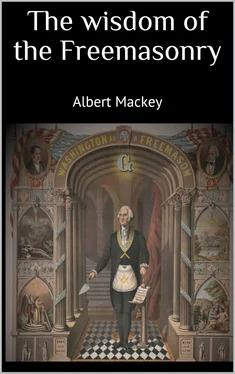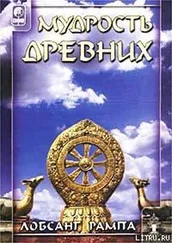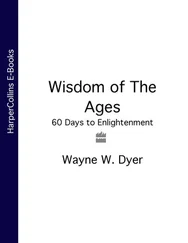The definition of Freemasonry that it is "a science of morality, veiled in allegory, and illustrated by symbols," has been so often quoted, that, were it not for its beauty, it would become wearisome. But this definition contains the exact principle that has just been enunciated. Freemasonry is a science--a philosophy--a system of doctrines which is taught, in a manner peculiar to itself, by allegories and symbols. This is its internal character. Its ceremonies are external additions, which affect not its substance. Now, when we are about to institute an inquiry into the origin of Freemasonry, it is of this peculiar system of philosophy that we are to inquire, and not of the ceremonies which have been foisted on it. If we pursue any other course we shall assuredly fall into error. Thus, if we seek the origin and first beginning of the Masonic philosophy, we must go away back into the ages of remote antiquity, when we shall find this beginning in the bosom of kindred associations, where the same philosophy was maintained and taught. But if we confound the ceremonies of Masonry with the philosophy of Masonry, and seek the origin of the institution, moulded into outward form as it is to-day, we can scarcely be required to look farther back than the beginning of the eighteenth century, and, indeed, not quite so far. For many important modifications have been made in its rituals since that period. Having, then, arrived at the conclusion that it is not the Masonic ritual, but the Masonic philosophy, whose origin we are to investigate, the next question naturally relates to the peculiar nature of that philosophy. Now, then, I contend that the philosophy of Freemasonry is engaged in the contemplation of the divine and human character; of GOD as one eternal, self-existent being, in contradiction to the mythology of the ancient peoples, which was burdened with a multitude of gods and goddesses, of demigods and heroes; of MAN as an immortal being, preparing in the present life for an eternal future, in like contradiction to the ancient philosophy, which circumscribed the existence of man to the present life. These two doctrines, then, of the unity of God and the immortality of the soul, constitute the philosophy of Freemasonry. When we wish to define it succinctly, we say that it is an ancient system of philosophy which teaches these two dogmas. And hence, if, amid the intellectual darkness and debasement of the old polytheistic religions, we find interspersed here and there, in all ages, certain institutions or associations which taught these truths, and that, in a particular way, allegorically and symbolically, then we have a right to say that such institutions or associations were the incunabula--the predecessors--of the Masonic institution as it now exists. With these preliminary remarks the reader will be enabled to enter upon the consideration of that theory of the origin of Freemasonry which I advance in the following propositions:-- 1. In the first place, I contend that in the very earliest ages of the world there were existent certain truths of vast importance to the welfare and happiness of humanity, which had been communicated,--no matter how, but,--most probably, by direct inspiration from God to man. 2. These truths principally consisted in the abstract propositions of the unity of God and the immortality of the soul. Of the truth of these two propositions there cannot be a reasonable doubt. The belief in these truths is a necessary consequence of that religious sentiment which has always formed an essential feature of human nature. Man is, emphatically, and in distinction from all other creatures, a religious animal. Gross commences his interesting work on "The Heathen Religion in its Popular and Symbolical Development" by the statement that "one of the most remarkable phenomena of the human race is the universal existence of religious ideas--a belief in something supernatural and divine, and a worship corresponding to it." As nature had implanted the religious sentiment, the same nature must have directed it in a proper channel. The belief and the worship must at first have been as pure as the fountain whence they flowed, although, in subsequent times, and before the advent of Christian light, they may both have been corrupted by the influence of the priests and the poets over an ignorant and superstitious people. The first and second propositions of my theory refer only to that primeval period which was antecedent to these corruptions, of which I shall hereafter speak. 3. These truths of God and immortality were most probably handed down through the line of patriarchs of the race of Seth, but were, at all events, known to Noah, and were by him communicated to his immediate descendants. 4. In consequence of this communication, the true worship of God continued, for some time after the subsidence of the deluge, to be cultivated by the Noachidae, the Noachites, or the descendants of Noah. 5. At a subsequent period (no matter when, but the biblical record places it at the attempted building of the tower of Babel), there was a secession of a large number of the human race from the Noachites. 6. These seceders rapidly lost sight of the divine truths which had been communicated to them from their common ancestor, and fell into the most grievous theological errors, corrupting the purity of the worship and the orthodoxy of the religious faith which they had primarily received. 7. These truths were preserved in their integrity by but a very few in the patriarchal line, while still fewer were enabled to retain only dim and glimmering portions of the true light. 8. The first class was confined to the direct descendants of Noah, and the second was to be found among the priests and philosophers, and, perhaps, still later, among the poets of the heathen nations, and among those whom they initiated into the secrets of these truths. Of the prevalence of these religious truths among the patriarchal descendants of Noah, we have ample evidence in the sacred records. As to their existence among a body of learned heathens, we have the testimony of many intelligent writers who have devoted their energies to this subject. Thus the learned Grote, in his "History of Greece," says, "The allegorical interpretation of the myths has been, by several learned investigators, especially by Creuzer, connected with the hypothesis of an ancient and highly instructed body of priests, having their origin either in Egypt or in the East, and communicating to the rude and barbarous Greeks religious, physical, and historical knowledge, under the veil of symbols." What is here said only of the Greeks is equally applicable to every other intellectual nation of antiquity. 9. The system or doctrine of the former class has been called by Masonic writers the "Pure or Primitive Freemasonry" of antiquity, and that of the latter class the "Spurious Freemasonry" of the same period. These terms were first used, if I mistake not, by Dr. Oliver, and are intended to refer--the word pure to the doctrines taught by the descendants of Noah in the Jewish line and the word spurious to his descendants in the heathen or Gentile line. 10. The masses of the people, among the Gentiles especially, were totally unacquainted with this divine truth, which was the foundation stone of both species of Freemasonry, the pure and the spurious, and were deeply immersed in the errors and falsities of heathen belief and worship. 11. These errors of the heathen religions were not the voluntary inventions of the peoples who cultivated them, but were gradual and almost unavoidable corruptions of the truths which had been at first taught by Noah; and, indeed, so palpable are these corruptions, that they can be readily detected and traced to the original form from which, however much they might vary among different peoples, they had, at one time or another, deviated. Thus, in the life and achievements of Bacchus or Dionysus, we find the travestied counterpart of the career of Moses, and in the name of Vulcan, the blacksmith god, we evidently see an etymological corruption of the appellation of Tubal Cain, the first artificer in metals.
Читать дальше












